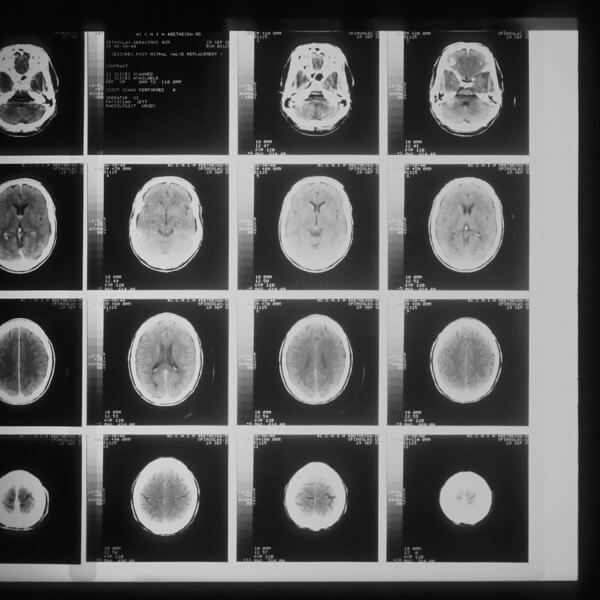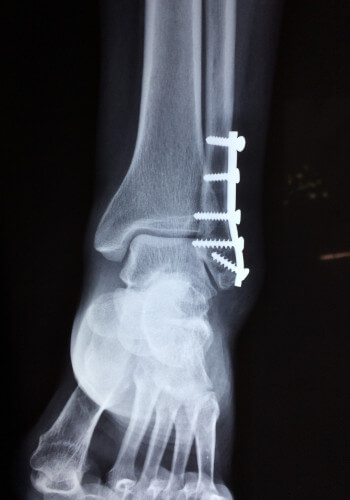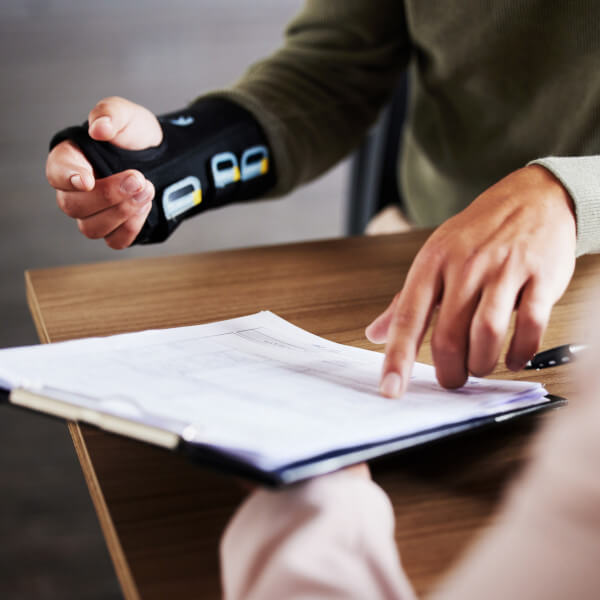Catastrophic injuries can shatter lives in an instant. These are not small wounds that heal quickly. They are serious injuries that can lead to permanent disability. These injuries often require long-term medical care and create emotional and financial stress.
Understanding Catastrophic Injuries: Legal Help and Maximum Compensation in Georgia
In Georgia, victims of serious injuries can seek justice and compensation. However, navigating the legal system alone can be hard. That’s where an experienced catastrophic injury lawyer from McArthur Law Firm becomes invaluable.
Call 1-855-WARRIOR (1-855-927-7467) or use our online contact form to speak with a catastrophic injury lawyer today. We offer free consultations, so there is no risk to call now!
This article will explain the types of catastrophic injuries. It will discuss the financial and emotional impact they have.
You will learn about your legal rights in Georgia. We will explain how a personal injury attorney can assist you or your loved one. They can help you get the compensation you deserve.
What Is a Catastrophic Injury?
A catastrophic injury is an injury that stops a person from working or greatly lowers their quality of life. Under U.S. Code 42 § 3796b, “catastrophic injury” means serious conditions.
These include traumatic brain injuries, spinal cord damage, amputations, and severe burns. These injuries typically involve long-term or permanent disability and require extensive rehabilitation or lifelong assistance.
Common Types of Catastrophic Injuries
Catastrophic injuries can stem from car crashes, workplace accidents, defective products, violent assaults, or medical negligence. Below are the most common types, including their average costs and long-term implications.
1. Traumatic Brain Injuries (TBI)
A traumatic brain injury occurs when a sudden blow or jolt to the head disrupts normal brain function. It ranges from mild concussions to severe brain damage.

- Cognitive impairment
- Memory loss
- Emotional instability
- Physical disabilities
An overview of the costs of medical treatment for a TBI may include:
- Initial hospitalization: $30,000–$100,000+
- Rehabilitation and therapy: $1,000–$2,000 per day
- Lifetime costs: Up to $3 million for severe cases
2. Spinal Cord Injuries (SCI)
Spinal cord injuries happen because of violent events that damage the spinal cord. These are very serious and can lead to paralysis, loss of mobility, or organ dysfunction.
Spinal cord injuries are a type of back injury, but there are several different types of spinal cord injury, including:
- Paraplegia (lower body paralysis)
- Quadriplegia (full-body paralysis)
The costs of an SCI can be significant and can range between:
- First-year cost: $375,000–$1.2 million
- Lifetime cost (age 25): Up to $5 million
3. Severe Burn Injuries
Medical professionals call burns that cover large areas of the body or go deep into tissues catastrophic injuries. These injuries often need skin grafts and reconstructive surgery.
Some of the consequences of severe burns include:
- Permanent disfigurement
- Organ damage
- Psychological trauma (e.g., PTSD)
Treatment for burns can be long-term and very intensive. A generalization of the medical treatment costs for treating burn injuries include:
- Per patient: $200,000–$1 million+
- Intensive care unit (ICU) stays: $10,000/day
4. Amputations
Amputation involves the removal of a limb due to trauma, medical error, or disease-related complications. Recovery includes prosthetics, surgeries, and retraining for daily activities.
Treatment for amputations can be quite costly. In general, the costs may include:
- Initial surgery and hospitalization: $90,000–$150,000
- Prosthetic limb (per limb): $5,000–$50,000 (with replacement every 3–5 years)
- Lifetime costs: $500,000+
5. Organ Damage
Severe accidents can damage vital organs such as the heart, lungs, kidneys, or liver. Organ damage can lead to permanent health conditions requiring dialysis, transplant, or lifelong medication.
The costs for treating organ damage can range wildly. This is due to the variation in accessibility of organs and the relative ease or difficulty of replacing certain organs. A broad overview of the costs for treating these types of catastrophic injuries may include:
- Organ transplants: $250,000–$1 million
- Ongoing care and medication: $20,000/year or more
Long-Term Financial and Emotional Impact of A Catastrophic Injury
Catastrophic injuries are not just physical; they’re emotionally and financially devastating. Here are just a few burdens victims and their families often face:
- Loss of income or future earning capacity
- Home modifications for accessibility
- Round-the-clock medical care
- Mental health services for PTSD, depression, and anxiety
- Strain on family caregivers, who may have to quit jobs to provide care
These impacts can continue for decades, making it essential to pursue full compensation for a catastrophic injury through legal action.
Legal Options for Catastrophic Injury Victims in Georgia
In Georgia, victims of catastrophic injuries may be entitled to compensation through one or more of the following legal avenues:
Personal Injury Claims

Key legal components of filing personal injury cases for a catastrophic injury include:
- Duty of care: The defendant owed you a duty (e.g., safe driving, product safety).
- Breach: They breached that duty.
- Causation: Their breach directly caused your injury.
- Damages: You suffered measurable losses.
Georgia follows a modified comparative fault rule (O.C.G.A. § 51-12-33), meaning if you are less than 50% at fault, you can still recover damages.
Product Liability Claims
If a defective product, such as a faulty airbag or a defective medical device, caused your injury, you may have grounds for a product liability claim against the manufacturer or distributor.
Georgia law (O.C.G.A. § 51-1-11) holds manufacturers strictly liable for injuries resulting from product defects, even if they were not negligent.
Medical Malpractice Claim
When a catastrophic injury is the result of medical negligence, such as surgical errors or misdiagnosis, victims can pursue a medical malpractice lawsuit under O.C.G.A. § 51-1-27.
Georgia caps non-economic damages in these cases (e.g., pain and suffering), but economic damages (like lost wages and medical bills) remain uncapped.
How a Catastrophic Injury Lawyer Can Help
Recovering from a catastrophic injury is overwhelming enough without trying to fight a legal battle. An experienced Georgia catastrophic injury lawyer plays a vital role in maximizing your recovery.
Here are just a few of the ways a catastrophic injury attorney can help you get the maximum settlement:
- Identifying All Liable Parties: An experienced injury lawyer will look into the incident carefully. They will find all sources of liability, including drivers, manufacturers, and third-party contractors. This way, you can seek compensation from everyone responsible.
- Calculating Full Damages: Many victims undervalue their claims, accepting early offers that fail to cover long-term care. An experienced lawyer will add past, present, and future medical costs. They will also consider lost income and include non-economic damages. These damages can cover pain, suffering, and loss of enjoyment in life.
- Negotiating With Insurers: Insurance companies will often undervalue claims or try to pin blame on the victim. Your lawyer will manage all communication. They will challenge low injury settlement offers. If negotiations do not work, they will file an injury lawsuit.
- Expert Witnesses and Medical Testimony: In catastrophic injury cases, expert witnesses (e.g., neurologists, orthopedic surgeons, life care planners) can testify to the extent of your injury and future costs. Your attorney will coordinate this critical evidence.
- Trial Representation: If your case goes to trial, a catastrophic injury lawyer will present a strong argument to the jury. They will question defense experts and work hard to win the highest verdict possible.
Time Limits for Filing a Catastrophic Injury Claim in Georgia
Georgia enforces strict deadlines, known as statutes of limitations:
- Personal injury: 2 years from the date of the injury (O.C.G.A. § 9-3-33)
- Medical malpractice: 2 years, with a 5-year statute of repose
- Product liability: 2 years for personal injury; 10 years for bringing the claim after the product was first sold
Missing these deadlines may permanently bar you from seeking compensation for catastrophic injury.
What Compensation Can You Recover?
With the help of a catastrophic injury attorney, you can pursue compensation for:
Economic Damages
- Medical expenses
- Rehabilitation costs
- Lost income and earning capacity
- Assistive devices and home modifications
Non-Economic Damages
- Pain and suffering
- Emotional distress
- Loss of consortium
- Loss of enjoyment of life
Punitive Damages
In cases of serious negligence or intentional harm, Georgia courts can give punitive damages. This is to punish the wrongdoer, stop future misconduct, and encourage injury prevention (O.C.G.A. § 51-12-5.1).
Get Legal Help for a Catastrophic Injury in Georgia

At this important time, you need a lawyer who knows Georgia law. They should have access to expert medical witnesses and be able to manage the stress of tough legal cases.
Take the First Step Today
The sooner you act, the better your chances of preserving evidence, meeting filing deadlines, and securing your financial future. Contact a qualified Georgia injury lawyer today. Schedule a free case evaluation and begin your path to recovery.
Call 1-855-WARRIOR (1-855-927-7467) now to start your road to recovery with an experienced catastrophic injury lawyer from McArthur Law Firm.
More Catastrophic Injury Resources
If you’d like to learn more about catastrophic injury law in Georgia, read some of our informative articles below.










